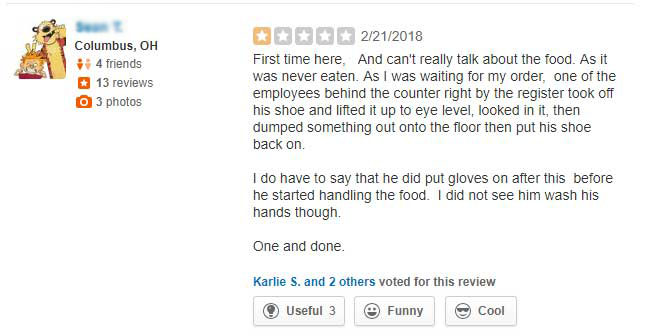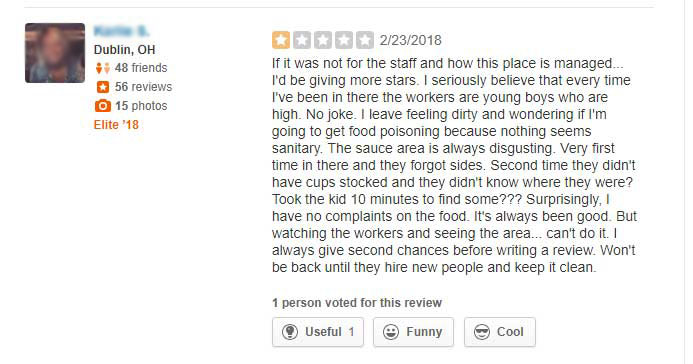School’s out and kids everywhere have begun looking for summer jobs. This can be both a blessing and a burden for the foodservice industry. Teen workers can help fill in shift gaps at wages that are attractive for employers.

But managing teens is not without its share of potential problems. Fortunately, a little advance planning and an understanding of how to best manage your new teenage workforce can help to avoid many issues.
For teens aged 16 to 19, restaurant work is the most popular summer job category. But most teens have absolutely no experience in the foodservice industry and, for many, it will be their first job ever in any field. So laying a solid foundation for teen workers is the key to success.
Training any worker only to have them leave (either voluntarily or otherwise) is a huge waste for restaurants. Let’s explore how you might be able to reduce that expense by appropriately training and retaining your teen summer workforce.
1. Know the Safety Laws
This can’t be stressed enough. Child labor laws are no joke. And nothing will ruin your summer faster than a lawsuit brought because a teen worker got injured on the job, doing something they shouldn’t have legally been doing at all.
Federal statutes apply across all states. But your state laws may be even stricter in some cases. Be sure to check if you are unsure. If you are still unconvinced, just know that workers 15-19 years old are more than twice as likely to be injured on the job than workers over age 25.
So what are some of the things you need to be aware of from a legal perspective?
- Teens under 18 may not work in hazardous occupations. This includes the use of potentially dangerous machinery used in food prep such as bakery mixers and meat slicers.
- Teens under 16 (i.e. 14- & 15-year-olds) are even more restricted. They cannot participate in cooking outside of some narrow limitations (such as a concession stand). This means they cannot run a deep fryer for example.
- Teens under 18 cannot drive on the job (though there may be an exception for 17-year-olds during daylight hours). Teens under 18 may deliver food by foot, bicycle and public transportation.
2. Know the Schedule Laws
The allure of abundant and relatively cheap summer labor might lead you astray if you aren’t careful.
You need to know how many hours a teen is legally allowed to work. And beyond that, you need to know what times of day they are allowed to work. And finally, you need to know how the rules change during different parts of the year (spoiler alert: teens are allowed to work more in the summer).
- Teens 14 & 15 can only work up to 18 hours per week during the school year, but can work up to 40 hours per week during vacations.
- Teens 14 & 15 can only work a maximum of 3 hours on school days and 8 hours on non-school days.
- During the school year, 14- & 15-year-olds can only work between the hours of 7 AM and 7 PM. However, they can work until 9pm between June 1st and Labor Day.
- The laws for 16- & 17-year-olds vary widely depending on the state. Check out this helpful state chart from the US Department of Labor to determine the laws where you live.
3. Remember – They’re Temporary
Most teen workers will not keep their summer jobs once school begins again in the fall. Because of this, teen workers can be the perfect solution for special projects that can be time-limited.
One of the best applications for teens is cleaning. Pick a cleaning project, outline your expectations and train where applicable. Deep cleaning projects can be great for teen workers. Keep in mind that there still may be limitations for teen workers, especially if cleaning involves hazardous chemicals/solvents or if it involves the use of certain types of machinery.
Other special project ideas include things like reorganization projects and inventory counts.
4. Remember – They’re New
Not only might a teen worker be new to your restaurant job, they may also be new to the workforce in general. This means that they may have zero experience in knowing what is appropriate at work.
As a manager, you need to make your expectations very clear. As you are training and orienting new teen workers, you will probably need to explicitly cover a number of topics that you would simply assume an adult worker already knows. Some examples include:
- When is it OK to use my phone? If you don’t set explicit rules, they will expect that it’s OK to use their phones whenever.
- What is the protocol for talking with friends who come in to visit?
- What are the dress code expectations?
- How should you address customers? What is acceptable and unacceptable language to use in front of customers?
- What are the procedures for calling in sick?

5. Train Your Managers
It often takes many layers of management to make a foodservice operation work.
The frontline managers who will be interacting with your new teen workers may need some guidance themselves. Don’t simply assume your managers know how to work with teens.
The teenage brain is still developing and can be profoundly different than the adult brain. The concept of abstract reasoning doesn’t really develop in young minds until between the ages of 11-16. This means that many teens will be very new to incorporating things like metaphors and other complex reasoning skills into their ways of interacting with the world. If your managers are not aware of this, it is very easy for them to “talk over the heads” of your new teen workers. And this can lead to frustration on both sides.
And then there is the concept of emotional maturity. Teenagers are still developing in critical ways emotionally. This can include how they react to frustration and anger as well as how they relate to adults or those that they perceive to be in authority. Managers need to be aware of these issues to effectively manager teen workers.
6. Don’t Assume
As teens begin to navigate the work world and their interactions with adults, they often find themselves in uncomfortable situations.
Closely aligned with their emotional maturity is the development of assertiveness. Assertiveness can partially be described as being “able to disagree without being disagreeable.”
But even beyond that, teens often do not feel comfortable admitting that they don’t understand things. Instead, they just agree and go along because they feel that is what is expected of them. This can pose problems when training teens as you may think they understand what they are being taught when in reality they are just not assertive enough to ask for clarification.
This can be compounded if teens are trained in groups as peer pressure comes into play. Many teens will not ask questions for fear of being perceived as dumb by their peers.
Fortunately, there are ways to mitigate these effects. For example, instead of simply asking teens if they understand, ask them to demonstrate the skill being trained. Then you will clearly see if they have understanding or if further training and clarification are needed.
7. Be Careful Putting Them on the Frontline Too Soon
Remember that your brand is much more than your logo or your color palette. Your brand is primarily comprised of how your customers feel about the experience they have with your brand.
Customer service can be one of the trickiest part of any foodservice operation. Customers are people too and they often come in with issues that require different approaches to handle effectively.
Teens may not be equipped to deal with all the situations that they may experience in dealing with customers. And putting unprepared or unmanaged teens on the front line can be very damaging to your customer experience.

8. Teach Them Something
Working in the foodservice industry can be a great introduction to the working world for teens. They learn things like working well with others in a team setting, work ethic, appropriate work social skills and much more.
If you really want to help your teen work force, teach them things that will help them throughout their lives, beyond just working a summer job.
A great example of this is counting change. Many cash registers will automatically tell the cashier how much change to return but relying on that can be problematic. What happens when the bill comes to $3.76 and the customer presents a $20 bill but then adds a penny because she would rather have a quarter than a bunch of smaller loose change? This move can baffle a teen who doesn’t know how to count change manually. And the ability to make change benefits teens in their role as new consumers as well. So look for opportunities to teach these types of skills and your teen work force will thank you.
In Summary
Having a summer job is a rite of passage for many teens. And employing teen labor is a time-honored tradition in many businesses, especially within the foodservice industry.
If you train them well and treat them appropriately, they can be a force multiplier for your business. But if mishandled, teens in the workplace can lead to bad outcomes for not only the teens themselves but also for the business owner and its customers.
A little preparation, training and understanding of the teen worker can help you both succeed.



